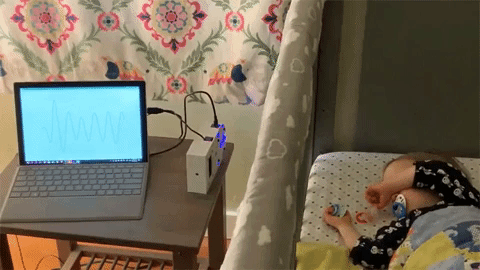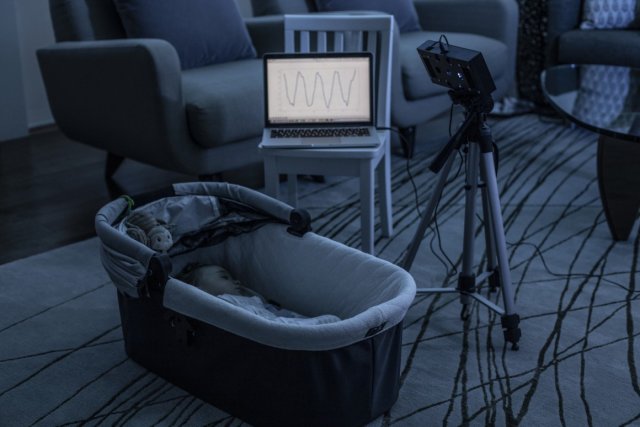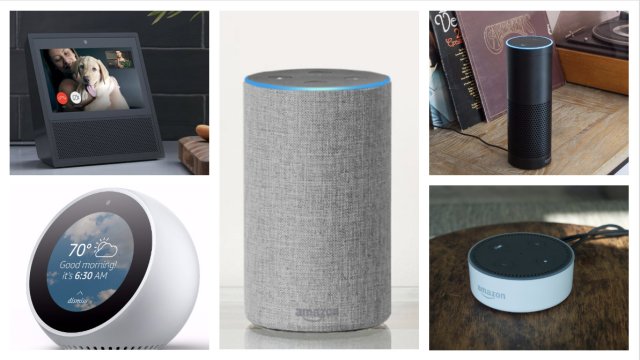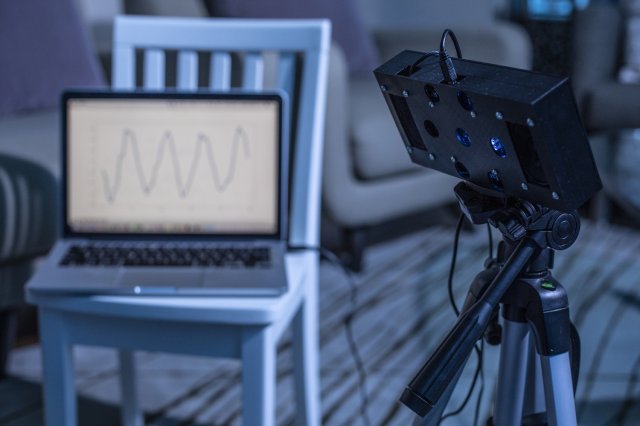Your Smart Speaker Will Monitor Your Sleeping Baby's Movement And Breathing
Sundar Pichai - Oct 21, 2019

The smart speaker has long been used in daily lives to play music, check the weather forecast as well as search things online. Now, they can do more.
- Apple HomePod Mini Review: "Cheap" Speaker With Amazing Sound
- Alexa Voice Assistant Will Soon Know Exactly Where You Are In The House
- Smart Speaker Sales In 2019 Grew By 70% And Won't Likely Be Affected By The Coronavirus Outbreak
Smart speakers like Amazon Echo or Google Home have long been used in daily lives to play music, check the weather forecast as well as search things online. Since the devices started allowing people to track their own health, they now feature a brand-new skill beneficial for infant monitoring. Specifically, researchers will make use of white noise coming from the speakers which help to both soothe the babies and keep track of their movement.

This skill, also known as BreathJunior, was developed by a team of researchers from the University of Washington. It detects babies’ motions by recording how white noise is reflected after coming out of the smart speakers. Researchers have conducted trials with five infants in a local hospital and witnessed a very close respiratory rate as compared to the result recorded by standard vital sign monitors.


The white noise, according to the researchers, is constructed from different sound frequencies. To keep babies asleep, this noise acts as a mask to cover up other sounds which might show up as a disturbance. Also, any difference between the white noise and its reflection from the infants’ body will be taken through the microphones mounted in the speaker itself, which helps the device monitor the movement as the baby rolls.


Detecting babies’ breathing, on the other hand, seems to be a little more complicated. The variations between the white noise reflect from the baby chest's movements are harder to detect. However, researchers have found out a method to handle the issue by using a larger speaker with multiple microphones. Once they pinpointed the exact position of the infant in the room, they focused the signal processing on the reflected sounds from that direction only for better results as well as accuracy.
The new skill is supposed to be installed on smart speakers including the Amazon Echo and the Google Home and have the ability to detect even abnormal breathing patterns. If successful, it might save parents hundreds of dollars to purchase other baby monitoring devices as they already own the tool they need.
Featured Stories

Features - Jan 29, 2026
Permanently Deleting Your Instagram Account: A Complete Step-by-Step Tutorial

Features - Jul 01, 2025
What Are The Fastest Passenger Vehicles Ever Created?

Features - Jun 25, 2025
Japan Hydrogen Breakthrough: Scientists Crack the Clean Energy Code with...

ICT News - Jun 25, 2025
AI Intimidation Tactics: CEOs Turn Flawed Technology Into Employee Fear Machine

Review - Jun 25, 2025
Windows 11 Problems: Is Microsoft's "Best" OS Actually Getting Worse?

Features - Jun 22, 2025
Telegram Founder Pavel Durov Plans to Split $14 Billion Fortune Among 106 Children

ICT News - Jun 22, 2025
Neuralink Telepathy Chip Enables Quadriplegic Rob Greiner to Control Games with...

Features - Jun 21, 2025
This Over $100 Bottle Has Nothing But Fresh Air Inside

Features - Jun 18, 2025
Best Mobile VPN Apps for Gaming 2025: Complete Guide

Features - Jun 18, 2025
A Math Formula Tells Us How Long Everything Will Live
Read more

ICT News- Feb 19, 2026
Escalating Costs for NVIDIA RTX 50 Series GPUs: RTX 5090 Tops $5,000, RTX 5060 Ti Closes in on RTX 5070 Pricing
As the RTX 50 series continues to push boundaries in gaming and AI, these price trends raise questions about accessibility for average gamers.

Mobile- Feb 17, 2026
Anticipating the Samsung Galaxy S26 and S26+: Key Rumors and Specs
The Samsung Galaxy S26 series is on the horizon, sparking excitement among tech enthusiasts.

ICT News- Feb 18, 2026
Google's Project Toscana: Elevating Pixel Face Unlock to Rival Apple's Face ID
As the smartphone landscape evolves, Google's push toward superior face unlock technology underscores its ambition to close the gap with Apple in user security and convenience.
Comments
Sort by Newest | Popular